God, save the king (and how to rescue the British monarchy)
Queen of the royal biography, Tina Brown, reveals her radical blueprint to rescue the royals once Charles becomes regent, including a resignation, an exile and a controversial role for Meghan and Harry.
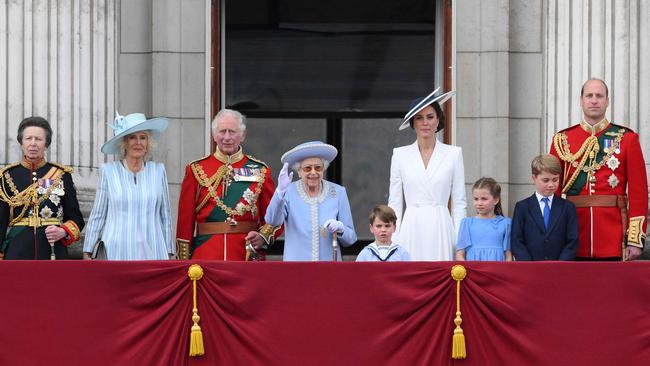
It’s 2030. King Charles is on the throne with Queen Camilla by his side. The Duke and Duchess of Cambridge are touring the country, shoring up the Union. The Duke of York is wiling away his days in Cornwall, out of sight and temptation. The Sussexes are back as working royals, touring the world to promote “the new Commonwealth”, of which Charles is no longer head of state.
“The Firm” has never looked more modern and its credit rating is higher than anyone dared to imagine after Charles’s coronation. Wishful thinking by arch-monarchists? No. This is what the woman who wrote the book on the royals thinks could happen, provided the monarchy plays its cards right.
Tina Brown, the British-born journalist and author, has written the recent history of the House of Windsor in two best-selling books, The Diana Chronicles and now The Palace Papers. Her sources – more than 120 in the latest book alone – are impeccable. She lunched with Princess Diana just weeks before her death and for her latest tome has tracked down chatty courtiers and ladies-in-waiting, “tramping up and down the stairs of their fading walk-up flats that reek of downward mobility and pointless, genteel sacrifice”, as she puts it in The Palace Papers.
She also knows a thing or two about modernising revered brands to keep them relevant. She successfully revamped the crusty toffs’ bible Tatler in London before moving to New York to breathe new life into the ailing Vanity Fair and, later, the cerebral but rather musty New Yorker magazine. She thinks the House of Windsor has to pull off a rebranding more epic than all of hers put together.
Her blueprint includes a blockbuster coronation for King Charles, the new monarch quitting as head of state of Commonwealth countries, Andrew being exiled, and Harry and Meghan sensationally brought back into the family fold. “With the right advisers and actions, the monarchy can secure its future,” she says.
Monarchy magic
A future? For a family rocked to its creaky foundations by the antics of the “coroneted sleaze machine” Andrew, the shock of Megxit and the recent disastrous tours of the Caribbean Commonwealth countries? Without the Queen to hold together the gilded theme park enterprise, surely it will crumble.
Not at all, Brown says, as last weekend’s jubilee celebrations prove. “Whenever there is a big royal event, there’s anxiety, gloomy predictions that nobody cares any more – and every time it’s proved completely wrong. People go absolutely mad. The monarchy still retains a deep resonance with British people.”
Why? “It’s the accumulation of our history, the thread that pulls us through collective memory. Aside from the monarchy, what unites us? Football. That’s it.”
Is she really sure many Britons wouldn’t rather have a president? “The world is turbulent – Covid, economic stress, Ukraine. People are anxious. The Queen provides a sense of composure, a safe space – dare I say it – at the top. It’s easy just to think of her as a symbol but her role is meaningful. Her ‘We’ll meet again’ broadcast during lockdown soothed the nation in ways no president ever could.”
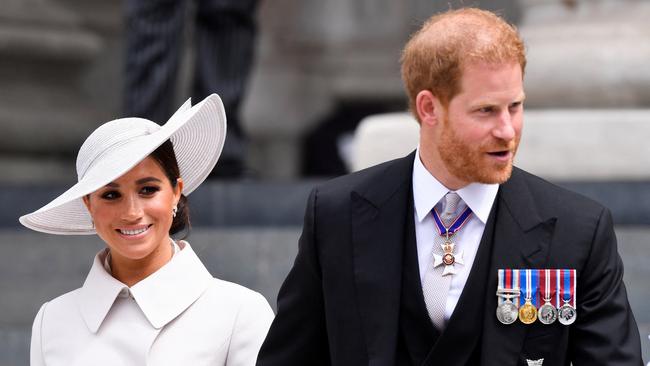
So, the royals survive. But how can they thrive? The charge sheet against them is long and damning and since Megxit has left them “more wobbly than ever”. Looking rather like a judge on It’s a Royal Knockout in her electric-pink jacket, black trousers and fake crocodile-skin slingbacks, Brown reads out each: “Coldness, extreme entitlement, a lingering colonial mindset, profligacy, sexual predation and, at times, creaking stupidity.”
Part of a successful rebranding exercise for the House of Windsor will be to ignore those who use the “moment of seismic peril when the Queen dies” to call for Britain to become a republic or argue that the King should opt for a slimmed-down coronation more in keeping with straitened economic times.
“Charles needs a shock-and-awe, crimson and ermine coronation to blow the doors off the start of his reign and affirm his role and that of the monarchy. It needs to be absolutely mesmerising and seen by hundreds of millions of people around the world. He has to go balls to the wall” – an Americanism that, one suspects, is not in common usage at Highgrove.
So, then what, I ask as Brown settles into her armchair in Soho House, one of a chain of private members’ clubs in central London where Harry and Meghan had their first date.
Charles will be “a better king than many people expect”, she predicts. “He has been in the waiting room for 70 years. He has seen a lot, been through a lot and knows every kind of world leader. He has always been authentic, never tried to be something he isn’t. He has been ahead of the curve on everything from the importance of interfaith dialogue to organic farming and sustainable living. What once looked like tree-hugging fogeyishness now looks prescient.”
That said, being 73 means “he will be a transitional monarch” – and he has to accept that.
“He has to prepare the ground for William to get the monarchy in shape, modernise what needs to be modernised and rethink its role, so William can lead it safely into a new, long chapter. If there are any hard decisions to be made, and there are, Charles should be the one to make them.” The new King needs to start by “right-sizing and shaping” the institution, so it is fit for modern, less lavish times.
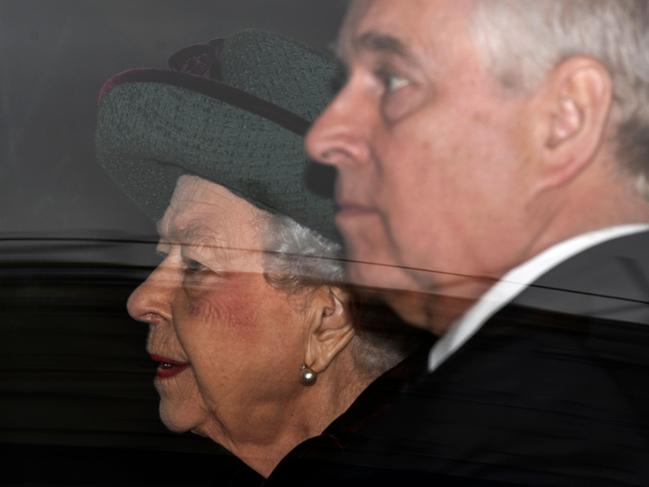
Brown thinks Charles has already decided he will live in a private apartment at Buckingham Palace and will allocate more of its 52 royal and guest bedrooms and 188 staff bedrooms to year-round public tours. Balmoral Castle is likely to become a museum of his mother’s reign – “a wonderful idea” – while Highgrove and Birkhall will remain the kingly retreats. Hundreds of staff will be let go. “Who needs yeomen of the pantry?” but, as King, Charles will still indulge his taste for grandeur and mystique. The royal toothpaste squeezer is unlikely to be axed.
One role that will have to disappear is that of the Duke of York.
“Charles needs to ensure Prince Andrew becomes a ghost. The sight of Andrew driving Range Rovers or cantering around Windsor Great Park is too damaging. In days gone by, he’d have been banished to a distant castle. Charles should do the modern equivalent: Get him to look for a new house far from London.”
And cut off his private funding? “No. Andrew will be less trouble if he has some kind of an income for the rest of his days.”
Key to the new King’s early successes will be Camilla who, Brown argues, “has hugely improved Charles because she is charming, gracious, discreet, uncomplaining and knows royal popularity needs to be earned by hard work”.
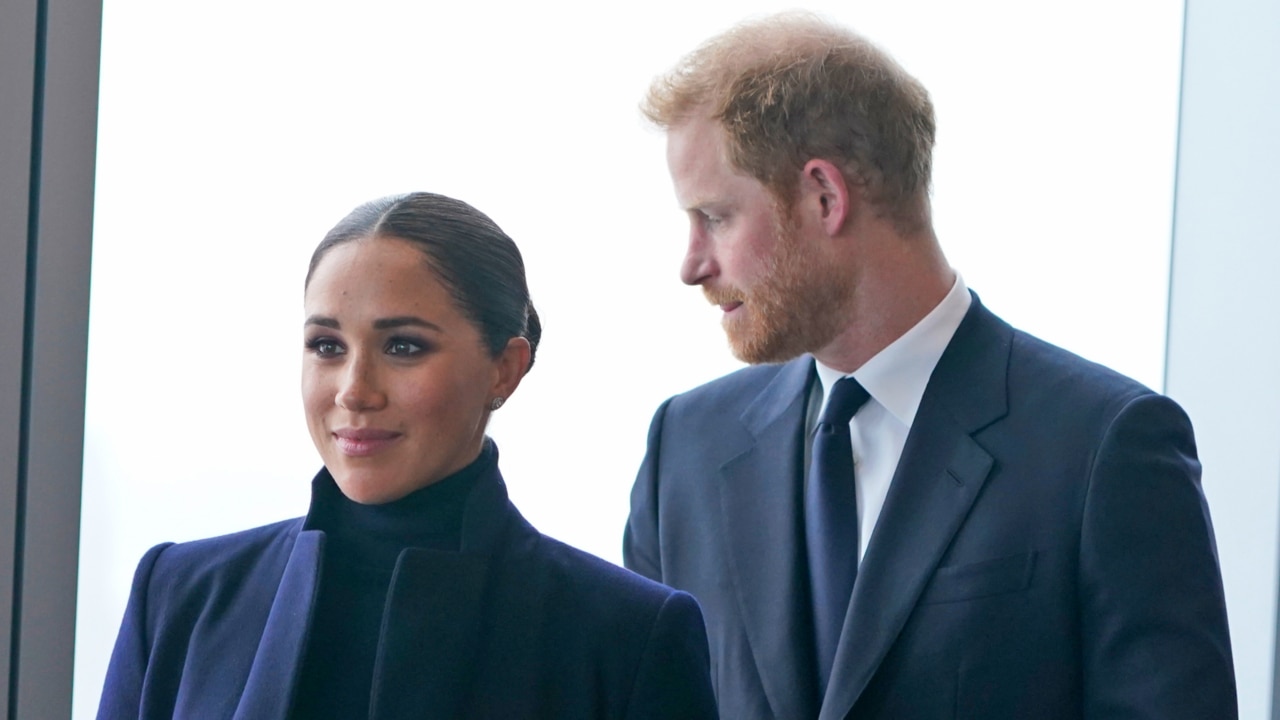
Camilla has helped to transform him from an Eeyore, who once complained that nobody knew how ghastly it was to be the Prince of Wales, into “an unapologetically happy man”. “He’s got the woman he loves with him and that has improved his whole performance. I think Camilla is going to be very popular.’’
As much as Diana? “No, she’ll never be beloved like Diana, but Charles will never be beloved in the way that the Queen is. They will find a different way to win the affection of British people.”
Once he has established himself and banished his toxic brother, Charles’s real work begins. Reinvention “has to come from the top” and will not come naturally “because the Palace is not used to having to change at anything more than a glacial pace”. Brown suggests that the new King takes a leaf out of the most successful political rebranding of the modern era: Tony Blair’s reinvention of the Labour Party into New Labour. “He needs a Clause IV moment,” she says. Blair signalled he would modernise the party by ditching the outdated Clause IV in its constitution, which committed it to the public ownership of key industries.
Brown suggests Charles looks to the Commonwealth. “It’s clear that most of the 15 Commonwealth realms will want to become republics. So, why not announce he will no longer serve as head of state unless the local population votes for him to remain so in a referendum, and also begin the process of stepping down from his separate role as sole head of the Commonwealth?”
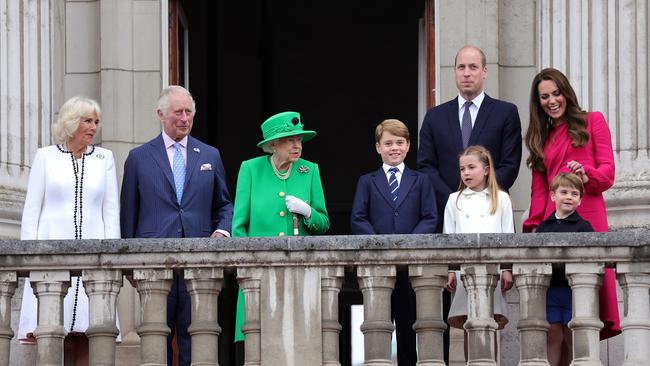
That would help the monarchy “get ahead of the tide of history” and also encourage new countries to join the federation that might have baulked at the idea of having an English King as head of state. “He needs to refashion the Commonwealth as a potent voluntary federation of countries to boost trade and cultural exchange. After Brexit, Britain could do with that.”
Fight for causes
While the new King is at it, he should scrap the traditional royal tour. “The de haut en bas standing up, with Catherine wearing an outsize tea-tray hat, being driven past the locals behind a wire fence? No, no, no! Even the word ‘tour’ makes it sound like you’re saying, ‘Behold, I’m here. Admire me.’ That’s all got to go.”
Instead, each royal visit should be themed around issues that the royals can talk about authentically. Charles’s visits should centre on the rights of Indigenous people, land and water, “which are and have long been his concerns”. Catherine should continue to focus on early-childhood education and William on climate change.
“They should all make sure they meet people deeply affected by each issue, so it humanises the causes and can elicit an emotional reaction on all sides. Otherwise, it feels like they’re making dull speeches on topics poll-tested for safety reasons.”
Harry has shown the way with his Invictus Games for injured servicemen and women. “It’s been such a hit because it’s focused, original, brilliantly executed and relevant to Harry, who served his country as a soldier for a decade. It gets a strong emotional reaction from him, participants and audiences.”
As Charles establishes himself, William and Catherine will be doing a lot more of the royal heavy lifting. Brown believes the couple’s biggest contribution will be to refashion the woefully outdated royal mantra of “Never complain, never explain” into something more “relatable”.
Catherine’s role will be crucial. “She’s very intelligent. She does a lot of watching, waiting and listening. She’s more strategic than William. Behind the scenes, she will help to guide William and others to find a way to emote, which is what the public now demands, without saying anything that could cause problems around contentious issues.”
How? “Catherine does it by just smiling all the time. It’s remarkable. You cannot find a picture of Catherine where she’s not radiating joy at all times, which is clearly an adopted strategy that is working.”
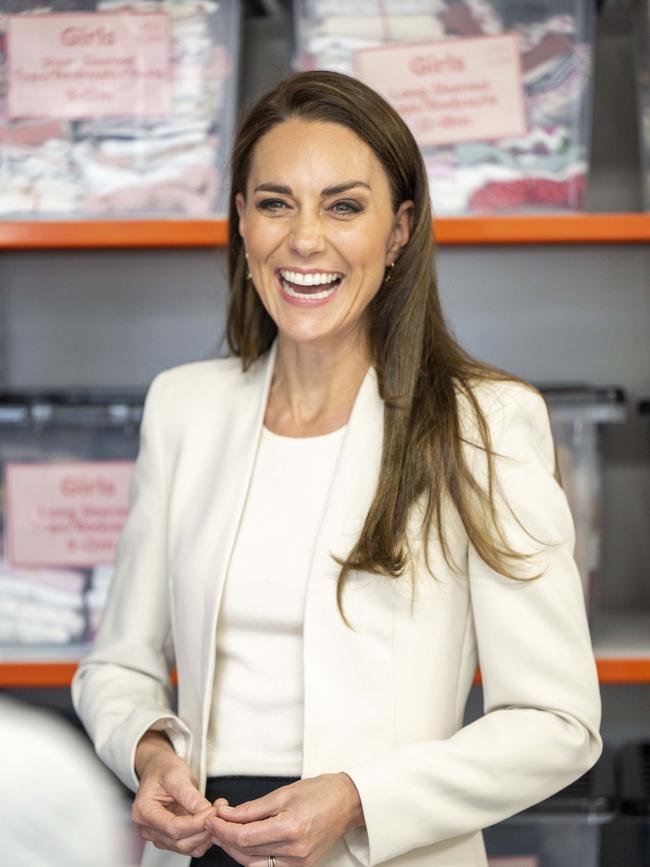
So far, so Succession. But while putting the House of Windsor in good order at home, the King will still have a job to do to ensure the monarchy retains its role as the only well-known global royal family, which is vital to its longevity and to Britain’s “soft power” which, in turn, helps the country “seem bigger than it is and punch above its weight”.
This is where Charles could play his joker card. While most observers dismiss the idea that Harry and Meghan might return to the royal fold, Brown says they could lead the reform of the Commonwealth. She points out that this was their role before they left for a new life in “the capital of smoothies and smiley face” Montecito, California. The Queen appointed Meghan vice-president of the Queen’s Commonwealth Trust and Harry president, “and they had a highly successful visit to Australia”.
“Their South Africa visit was also immensely successful until it was completely derailed by the interview with Tom Bradby.” Shortly after visiting an impoverished township in Cape Town, Meghan told the ITV newsman that royal life was miserable.
Brown insists Meghan’s “modernising insights are good ones but that she tried to do too much all at once and her time inside the institution was so short” – 20 months, compared with Diana’s 16 years.
“It’s not too late to have another go. She and Harry have a great connection to the young and could be successful ambassadors for ‘the new Commonwealth’. Meghan can speak to the need for diversity in a way no one else in the royal family can.”
Harry may soon need to return to rain, rugby and warm beer before he goes completely la-la in La-La land, Brown says. “The last comment I heard him make was bizarro. He said, ‘America is much more open about mental health issues than England.’ That’s true and a good thing. But he went on to say, ‘You talk about it here in California – “I’ll get my therapist to call your therapist”.
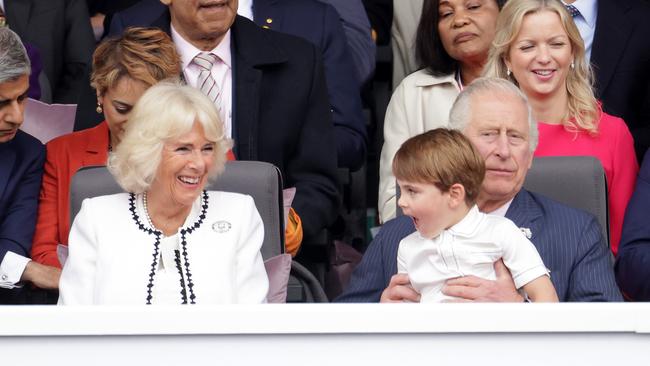
“I’ve lived in America since I was 30. As editor of Vanity Fair, I met the most ‘out there’ celebrities and I’ve never heard anybody say anything so out of touch with reality and plain silly as that. Patient confidentiality means it could not possibly happen, even if someone actually thought it would be a good idea. He’s extremely emotional, vulnerable and reckless.”
Most commentators say Harry’s decision to follow up the excoriating interview with Oprah Winfrey last year with, later this year, an “intimate and heartfelt” memoir, will make any return to royal duty impossible. Brown agrees: “I’ve heard it is going to be tough on the royal family.” She recommends the Palace “takes steps to persuade him to abandon the book. Somebody needs to go to Harry and try saying, ‘We’re going to give you a cheque for whatever fee you’ve negotiated for the book and, in return, we ask that you don’t do it’.”
Harry’s advance is rumoured to be $US20m. The Palace could add a sweetener that, if he decides not to “tell his truth”, it will pay for the police protection his family lost when they moved to the US and which they still crave.
Harry and Meghan might be tempted to return to the royal fold because their new media careers could turn out to be less successful than they hoped.
“The decision to bank all on entertainment deals is hazardous,” Brown warns. “You can be as boring as you like if you’re in the royal family. You’re still going to have status and top the bill. But if you’re in entertainment, you need hit after hit and there is a limit to how many even the biggest stars can generate. If you’re someone whose last movie was a flop, it’s amazing how fast you can fall.”
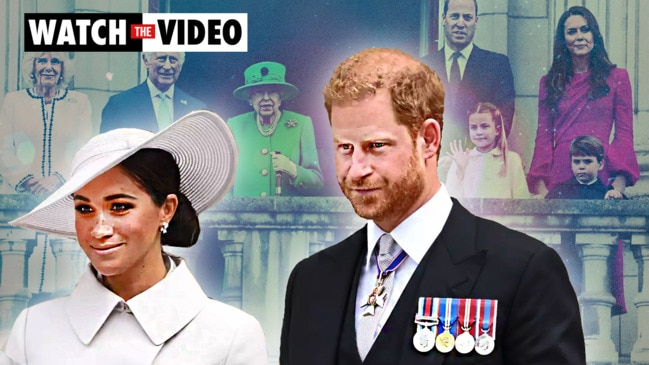
She leaves unsaid the other big problem: Meghan’s most bankable role appears to be slagging off the snooty royals. “Unlike Harry with Invictus, Meghan has not really developed a post-royal ‘brand’ yet. She’s all over the place with assorted causes from vaccines to mentoring all worthwhile but not original, unifying or focused. She’s struggling for relevance. There’s been a dimming of the halo.”
A united front
Netflix recently cancelled the development of Pearl, an animated series created by Meghan that would have chronicled the adventures of a 12-year-old girl who is inspired by influential women from history. The streaming giant continues to work with Archewell Productions, the company formed by Harry and Meghan, on a documentary about the Invictus Games, “but documentaries are never that big in terms of the money they bring in”, Brown says.
If the documentary does not generate serious cash, will Netflix, under extreme financial pressure as subscribers desert in droves, renew its contract with the couple, which is estimated to be worth $US100m?
A return of the prodigal son and daughter-in-law is a tantalising prospect for those who think Megxit was a self-inflicted disaster on all sides. But even if Harry does ditch his book, hasn’t too much bad blood flowed already for a reconciliation with, in particular, Charles, William and Catherine?
Father and brother were deeply upset by the Oprah interview, notably by the explosive claims that it was Catherine who made Meghan cry, not the other way around as was reported, and hints that an unnamed senior royal inquired what colour their then-unborn son Archie’s skin would be.
“The biggest sadness for Charles is ‘losing’ Harry. Charles was actually much closer to Harry than William. He used to call him ‘dear old Harry’. He’s very hurt and puzzled by what Harry has done and said,” Brown says.
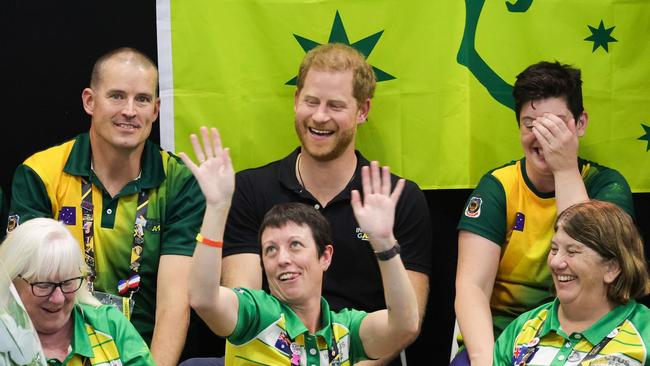
The pictures of William and Harry at the Duke of Edinburgh’s funeral last year confirmed they can scarcely look at each other, far less talk. “William thinks Harry has lost the plot. The major issue between them is trust. I actually think that after Oprah, there could have been reconciliation privately, gradually. But the trouble is, Harry keeps lobbing bombs. It’s an open wound.”
Brown acknowledges that her royal makeover is so bold it is likely to make some Palace officials reach for the gin. Crucial to its success will be advisers who keep a cool head. Tony Blair managed to rebrand Labour and win three consecutive general elections because he had a great frontbench team and wily image-makers behind the scenes.
King Charles is going to have to deploy “a diverse brain trust of fresh thinkers who do the big, visionary, entrepreneurial thinking”. Who should he turn to? “Historians like David Olusoga and Simon Schama, as well as image-makers and very clever speechwriters. People who understand a diverse 21st-century Britain and how a modern monarchy should look and sound.”
The biggest risk is “doing nothing, sticking to business as usual and hoping that by ‘keeping buggering on’ everything will be all right.”
And if Charles bottles it? “The royal family could face its Kodak moment, its BlackBerry moment, its Nokia moment, its Blockbuster moment. Choose any big company or institution that carried on doing things in the way it always had, ignoring huge changes in the world around it because it could not bring itself to bet the farm. Until, one day, at the speed of light, it’s irrelevant.”
THE SUNDAY TIMES

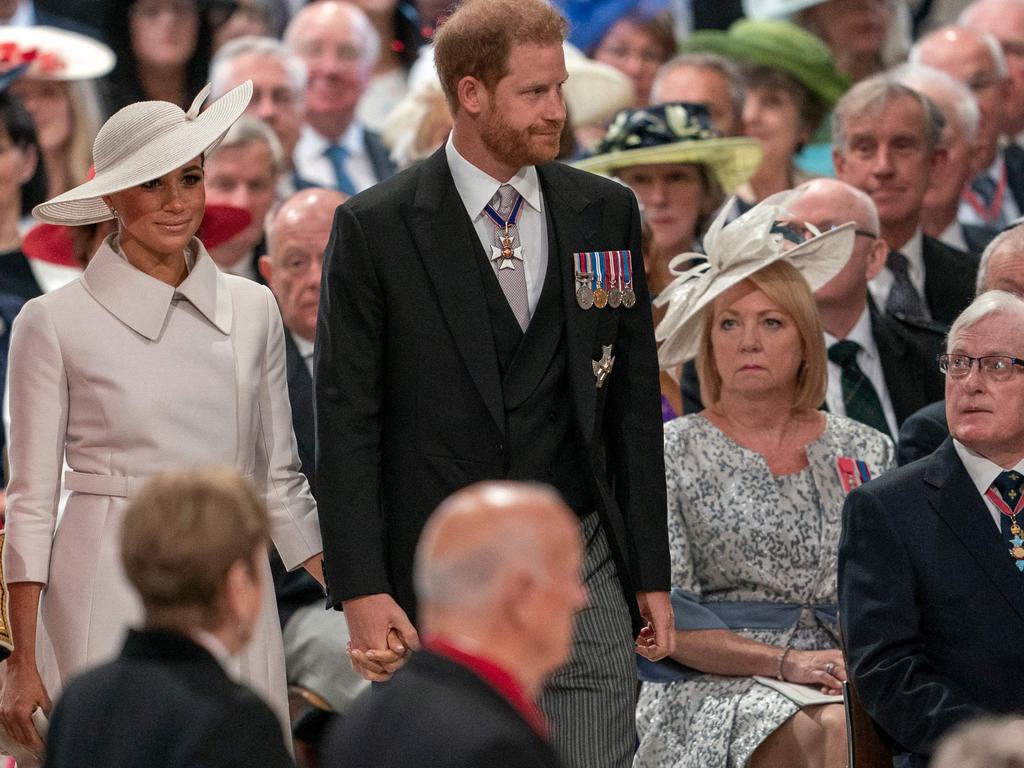
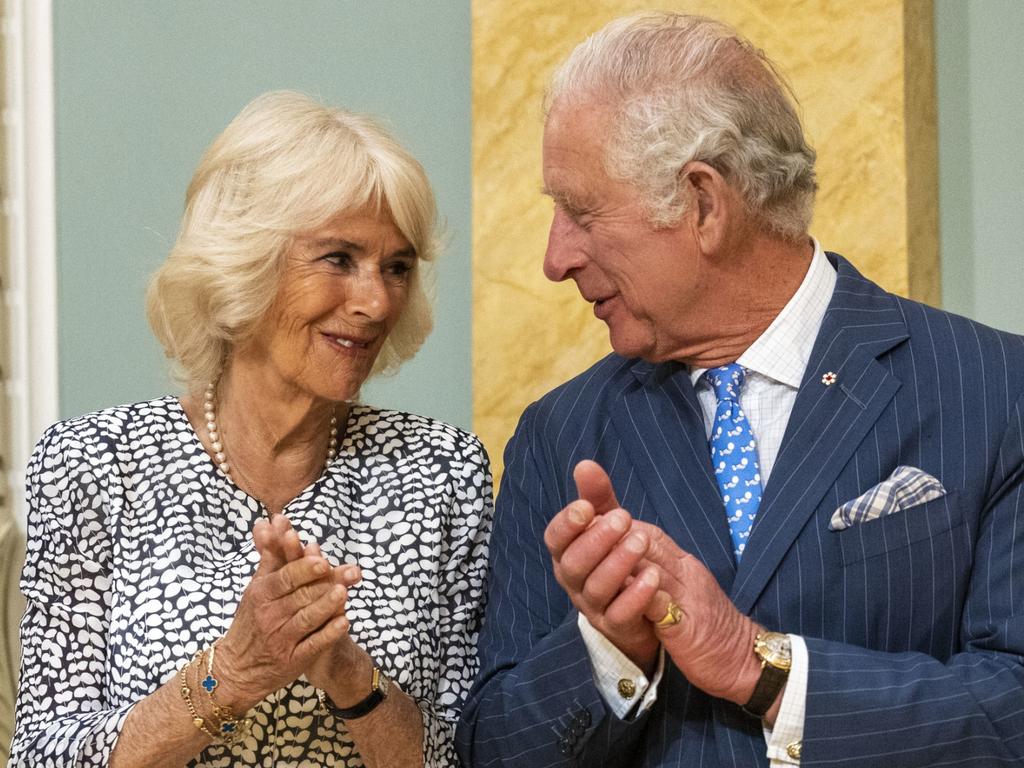
To join the conversation, please log in. Don't have an account? Register
Join the conversation, you are commenting as Logout